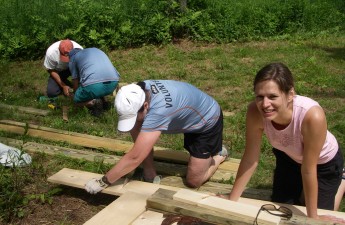
In a river recreation and conservation setting, managing conflict among stakeholders can be a significant task. River users of all sorts – from recreationalists and families to businesses, city officials, and farmers and ranchers all have a stake in how they would like to see their river used and managed for recreation. However, it is these diverse groups of stakeholders that are often able to develop the best and most appreciated river trails throughout the country.
As a fellow river advocate of river trails, I often wonder about the best tools and resources I can bring to the table and utilize in stakeholder meetings. Conflict and differences in opinion are often inevitable, however if you are equipped with the skills and tools for success, you can mitigate a lot of the conflict and tension that can occur in stakeholder settings. Below are some tools and resources our colleagues at Meridian Institute, a nonprofit focused on collaborative initiatives, have suggested to utilize in stakeholder situations where conflicts arise.
- Building Trust
This resource focuses on multi-stakeholder environmental conflicts. It has a strong emphasis on conflict resolution in a cross-cultural setting—particularly in dealing with tribes and native people. Highly recommended. - Collaborative Approaches to Environmental Decision-Making: A State Agency’s Guide to Effective Dialogue and Stakeholder Engagement
This reference is targeted at state agencies that are trying to use collaborative approaches to decision making. It includes 10 case studies from the Northeast. Highly Recommended. - EPA Facilitation, Conflict Resolution, an Alternative Dispute Resolution Guide
This is a good guide from the EPA Community Involvement program on facilitation, mediating conflicts and some of the basic of conflict resolution. Highly recommended. - Red Lodge Clearinghouse Collaboration Handbook
The Collaboration Handbook provides a great, detailed overview of major components of collaborative decision-making. Highly recommend. - Watershed Solutions: Collaborative problem solving for states and communities
This is a summary of a colloquium on watershed collaboration. It summarizes some lessons learned for successful watershed initiatives and recommendations for improve partnerships. It is not specifically focused on conflict resolution, but rather on strengthening collaboration.
Interested in learning more? Join us and our colleagues at Meridian Institute, Sarah Walen and Robyn Paulekas on Tuesday, March 17th at 1 pm ET to learn more about managing conflict in stakeholder groups as part of our monthly webinar series. Sign up today!
